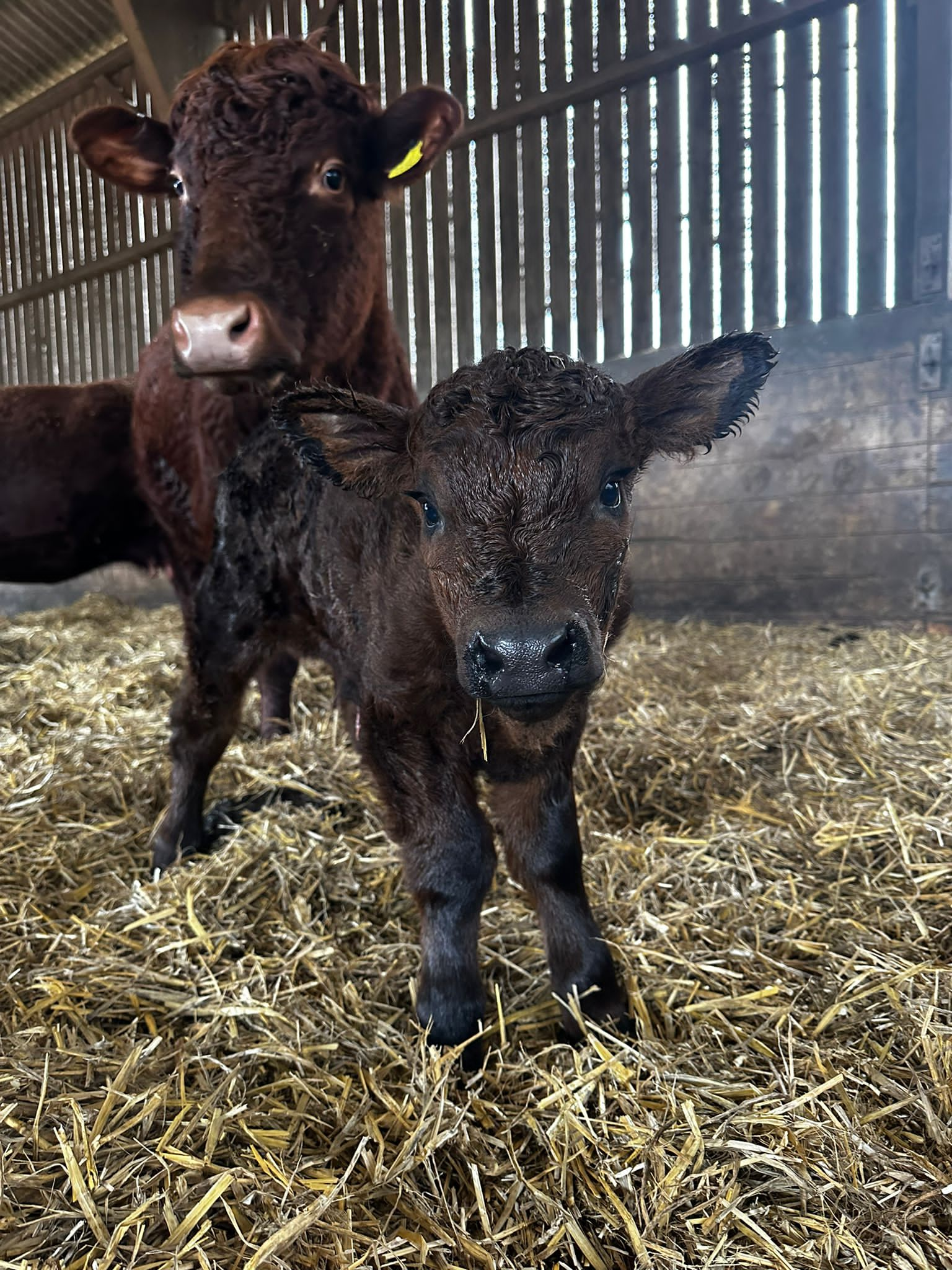Welcome to our latest farming blog written by our Farmer, Justin, featuring new arrivals on the farm…
What a wet winter we’ve experienced in Torbay!
As depressing as winter can be, we’re now in my favourite time of year when new life seems to burst from everywhere on the farm. And at the same time our herd is increasing with new arrivals as the cows begin to calf.
The herd have been in the safety and warmth of the sheds all winter and the Pregnancy Diagnosis we did before Christmas helped to inform their care. We’ve been keeping a close eye on their progress to make sure everything goes smoothly including regular checks throughout the day (and night if we think a birth is likely), and we’re on hand if there’s a problem.
Cows calf with the calf presented front feet, head first, so a bit like Superman. A leg bent backwards or a twisted head is enough to prevent a successful birth and its at that point that we might need to assist. A breech birth is something to be wary of; if back feet appear first then we are there to help and if all we see is the calf’s tail and no feet then its an immediate call to the vet for help.
As a natural process, things don’t always turn out the way we would like, but we do our very best. Once the calf has been born we check that the cow has milk or actually Colostrum. Colostrum is a thick sticky liquid that can best be described as being like condensed milk, that the cow produces first following the birth and that reverts to milk as the calf suckles on her. It has all the essential nutrients that the new born calf requires and also passes immunity to the calf from its mother, to prevent bacterial infections.
It is really important that the calf has this feed in the first 6 hours of birth and so if the mother hasn’t produced it, we either defrost some we’ve kept from another cow where her calf unfortunately hasn’t survived or we give them a powdered version which is like baby formula.
The calves remain in the sheds with their mums until we turn them out on summer grazing, usually in late April once the weather improves and the grass is growing.
The eagle eyed amongst you will notice some of our calves are black not the Devon ruby red. This is because 2 of our 3 bulls are the black Aberdeen Angus. The cross between two different breeds has an effect called hybrid vigour and can lead to a stronger, more healthy calf, a bit like a mongrel versus a pedigree.
Our farm and our animals are all certified organic through the Soil Association. Organic standards ensure a very high level of animal welfare is achieved, that the animal’s food always comes from a sustainable source and the whole farm works with nature and natural processes and not against it. We have been organic since we started farming 20 years ago and it’s something we are very proud of.


